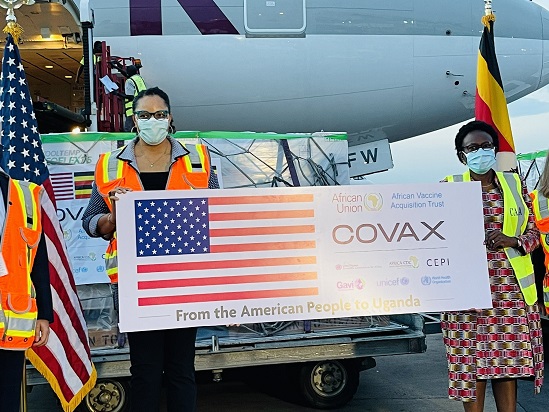The Tax Appeals Tribunal has made a ruling in which MTN Uganda is ordered to pay over Shs20bn in taxes to Uganda Revenue Authority (URA).
URA carried out an audit and discovered that MTN Uganda had not paid VAT amounting to Shs20, 053,441,670 for the period 2014-2017.
For updates and latest info about COVID-19 situation in Uganda, visithttps://bit.ly/2WKANNF
However, MTN objected URA’s assessment and run to Tax Appeals Tribunal and filed a case (Application No 15 of 2018) against the tax body.
The applicant (MTN) was represented by Oscar Kambona, Bruce Musinguzi and Barbara Musiimenta while the respondent (URA) was represented by Gloria Twinomugisha and Daniel Kasuti.
The Tax Appeals Tribunal, under the jurisdiction of Dr. Asa Mugenyi, Christine Katwe and Siraj Ali delivered its verdict on May19, 2020 in favour of the respondent (URA).
Background
MTN’s sole witness, Apollo Joseph Marumbu, a tax specialist in the applicant’s finance department testified that the applicant is a mobile telecommunication company that provides mobile and fixed line telecommunication services since 1998.
In 2009, MTN introduced mobile money services which are financial services.
Since March 2011, the applicant has been using standard method under the VAT Act.
The Applicant reviewed its application of Standard Method and decided to use the Standard Alternative Method under S.28 (10) of the VAT Act, because the use of the Standard Method was a disadvantage to it.
On 3rd November 2015, the applicant applied to the Commissioner General for permission to use the Standard Alternative Method.
On 14th March 2016, a written approval to use the Standard Alternative Method was given to the applicant.
On 8th June 2016, the applicant wrote to the respondent requesting to apply the Standard Alternative Method retrospectively with effect from 1st January 2014.
In response to the said request, the respondent (URA) asked the applicant to provide it with details of its input tax showing the categories of directly attributable input tax to exempt and taxable supplies for the period since January 2013.
This information was provided to the respondent by the applicant in its letters of 11th July 2016 and 27th October 2016.
On 5th April 2017, the respondent wrote to the applicant requesting it to apportion its network related costs and company overheads between mobile money and telecom services using ratios in S. 28 (10) of the VAT Act. The respondent deferred its approval of the retrospective application of SAM pending the applicant’s compliance with its letter.
On 19th April 2017, the applicant informed the respondent that the proposal to apportion was unacceptable as it eliminated the advantage the former sought gain.
On 24th November 2017, the respondent issued an assessment of Shs20bn against the applicant, Shs15.42bn being the principal tax and Shs4.62bn being interest.
On 3rd January 2018, the applicant objected to the said assessment.
On 29th March 2018, the respondent issued an objection decision disallowing the objection.
Marumbu testified that the mobile money platform is distinct from that of telecom one with no shared costs.
However, the respondent’s first witness, Teddy Kyaligonza, a telecoms Engineer and compliance officer and attached to its Large Taxpayer’s Office testified that in applying the Standard Alternative Method, the applicant ought to have appropriately apportioned costs shared between the telecom services and the mobile money services.
The respondent’s second respondent Geoffrey Mujabi, a compliance officer in its Large Taxpayer’s Office, testified that the applicant was authorized to apply the Standard Alternative Method retrospectively effective from January 2014. S. 28 (7)of the VAT Act allows a taxpayer who makes both exempt and standard rated supplies to use the Standard Alternative Method.
He testified that the authorization was given on condition that the applicant would keep separate records of input tax incurred on input tax directly related to taxable supplies, exempt supplies and input tax not directly attributable to either taxable or exempt supplies as required under S. 28 (7) of the VAT Act.
THE RULING
In its May19, 2020 ruling, the Tax Appeals Tribunal noted that the applicant didn’t tender its proposal for the Standard Alternative Method which it gave to the respondent as evidence.
“Therefore, we are not in position to state whether it was correct. However, the Tribunal wishes to hold that it is not automatic that when a tax payer makes a proposal to the respondent it is adopted as the Standard Alternative Method. The proposal ahs to comply with S.28 (7) of the VAT Act and Regulation 14 of the VAT Regulations,” it said in its judgment obtained by Business Focus.
Therefore, it said, the respondent was justified to ask the applicant to attribute and apportion all network related costs and company overheads between mobile money and telecom services using ratios in S. 28 (10) of the VAT Act. The respondent acted within the law.
Though the respondent allowed the applicant to use the Standard Alternative Method, the Tribunal said, it cannot be said that the applicant is entitled to a refund as calculated by it because its proposal was never accepted.
“The assessment of Shs20bn against the applicant is upheld,” the Tribunal ruled, noting that each party will bear its costs.
The Tribunal added that URA should reconsider MTN’s application but the “Applicant should apportion its input tax according to those that are taxable, exempt and those that are not attributable to ether, in accordance with Regulation 14 (3) of the VAT regulations.”
The applicant should also adjust its proposal for the period in issue so that it is in line with S. 28 (10) of the VAT Act and Value Added Tax Regulations.
REACTIONS
Commenting on the big win, Ian Rumanyika, Manager Public & Corporate Affairs at URA said they carried out an audit and discovered that MTN Uganda had not paid VAT amounting to Shs20,053,441,670 for the period 2014-2017 that culminated into a legal battle which the tax body won.

“We are happy with the ruling and also grateful to our in-house legal staff who always put on a spirited fight to make sure the Government and the citizens do not lose revenue,” Rumanyika said in an exclusive interview.
He added: “We dedicate such wins to those who diligently pay their fair share of taxes and meet their obligations in time.”






